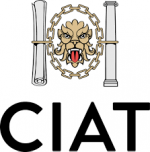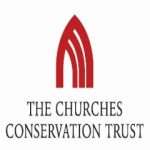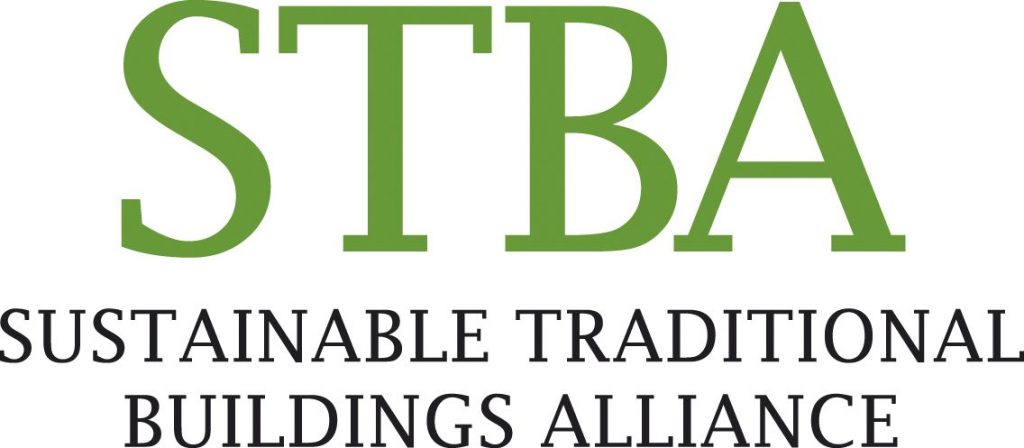STBA Supporting Organisations
STBA Supporting Organisations
Our supporting organisations comprise public and other not-for-profit bodies, drawn from three sectors: Sustainability, Heritage and Industry.
Our Members and our Supporting Organisations have agreed to work together to develop, deliver and improve guidance available to the construction industry regarding the correct repair, maintenance, improvement and retrofit of traditional buildings.

Allergy UK is a non-government funded not for profit charity, formed in 1991 by leading allergists to improve awareness, management and treatment of allergy. Since then it has developed into the UKs recognised charity for allergy and has an extensive range of activities. We are continually seeking ways to improve the quality of life for people with allergy, by offering as much support and information as possible. We have over 130 factsheets on our website and our helpline advisors are allergy trained and provide reassurance and guidance to people suffering from allergy, seeking best advice as to how to cope and make their everyday life more bearable.

Association of Environment Conscious Building (AECB) is a network of individuals and companies with a common aim of promoting sustainable building. It brings together builders, architects, designers, manufacturers, housing associations and local authorities, to develop, share and promote best practice in environmentally sustainable building. The AECB was established in 1989 to increase awareness within the construction industry of the need to respect the environment. The AECB is run by its members and is an independent, not for profit organisation.
The Alliance for Sustainable Building Products is a cross sector, not for profit organisation, comprising, building product manufacturers and distributors, specifiers, designers, contractors, public interest and sustainability organisations, academics and other building practitioners. It is committed to accelerating the transition to a high performance, healthy and low carbon built environment by championing the increased understanding and use of building products that meet demonstrably high standards of sustainability.

Construction Industry Training Board (CITB) uses robust sector specific labour market intelligence to develop and deliver a range of products and services to construction employers, and invests employer funds in a variety of ways – so that businesses can keep the skills in their workforce up-to-date, and increase their bottom line.

Changeworks is an environmental charity and social enterprise, working in collaboration with public and third sector organisations, schools, communities and businesses in the delivery of solutions that enable people to live and work more sustainably.

The Chartered Institute of Architectural Technologists is a dynamic, forward-thinking and inclusive global membership qualifying body for Architectural Technology. It exists as a not-for-profit organisation to lead and promote Architectural Technology and sets and maintains the standards for education, practice and professionalism. It is the only international body able to award the regulated and protected qualification, ‘Chartered Architectural Technologist’ and the designation MCIAT.
The Institute has a Directory of CIAT-Accredited Conservationists, with Chartered Architectural Technologists who have qualified as a CIAT-Accredited Conservationist or CIAT-Recognised Conservationist (non-practising). CIAT-Accredited Conservationists are recognised to act as lead consultants on grant-funded projects and are recognised in the UK as conservation-accredited professionals.
The Chartered Institute of Building is at the heart of a management career in construction. Our focus is on those entering and already in a management career in construction. By delivering qualifications and certifications that meet the needs of a changing industry. We work with members, employers, academia and governments across the globe to drive forward the science, practice and importance of management in construction.

Churchcare is the Cathedral and Church Division of the Church of England; a national resource, supporting over 16,000 parish churches and 42 cathedrals. It incorporates strategic campaigns, Shrinking the Footprint – the Church of England’s environmental campaign – and Open and Sustainable Churches.

The Churches Conservation Trust is the national charity protecting historic churches at risk. They have saved over 340 beautiful buildings which attract more than 1.5 million visitors a year.

The Conference on Training in Architectural Conservation (COTAC) was formed in 1959 to improve the standard of education of everyone involved in building conservation, including craftsmen, professionals and home owners.

The Federation of Master Builders (FMB) is the UK’s largest trade association in the building industry, with national offices in England, Northern Ireland, Scotland and Wales, supported by additional regional offices. Established in 1941 to protect the interests of small and medium-sized building firms, the FMB is independent and non-profit-making, lobbying continuously for members’ interests at both national and local levels.

Federation of Environmental Trade Associations (FETA) is the UK body which, for over 30 years, has represented the interests of some 400 manufacturers, suppliers, installers and contractors within the heating, ventilating, building controls, refrigeration & air conditioning industry to policy makers and the wider public.
Fit for the Future is an environmental sustainability network with over 100 charities, heritage organisations, cultural venues, public sector organisations and more in its membership. By collaborating and sharing knowledge, our members are becoming climate-friendly, adaptive and resilient.

Glasgow Caledonian University is a distinctive, inclusive and forward-looking university that is committed to its social mission to promote the common good. I has become an international centre of excellence in higher education, promoting employability and global citizenship in their graduates.

The Green Register trains construction professionals from all disciplines of the industry to build better, more sustainable buildings. Whether you are interested in a new home for you or a client, workplaces, cinemas, stadiums or any other types of building, by sharing passions and knowledge around energy, health and wellbeing, land use, materials, pollution, transport, waste and water.
TGR cover all aspects of sustainable building practices from healthy buildings, passivhaus and retrofitting older buildings through to highly technical training sessions on the holistic management of heat, moisture and air tightness.

ICOMOS works for the conservation and protection of cultural heritage places. It is the only global non-government organisation of this kind, which is dedicated to promoting the application of theory, methodology, and scientific techniques to the conservation of the architectural and archaeological heritage. ICOMOS is a network of experts that benefits from the interdisciplinary exchange of its members, among which are architects, historians, archaeologists, art historians, geographers, anthropologists, engineers and town planners. The members of ICOMOS contribute to improving the preservation of heritage, the standards and the techniques for each type of cultural heritage property: buildings, historic cities, cultural landscapes and archaeological sites

IHBC is the UK’s professional body for historic environment conservation specialists. IHBC members work in areas that help secure the conservation of historic places, buildings, sites or areas that we value. Anyone interested in historic environment conservation as a career, or already working in it, will want to become a member of the IHBC.

The Low Carbon Trust is a not-for-profit organisation formed in 2001 to set up, manage and promote environmental projects around the built environment. Their aims are to: Promote low carbon buildings, policies and livelihoods in the face of climate change; Promote and develop models of good practice of low carbon construction; Initiate and support the adoption in the UK and in Europe low carbon developments as affordable buildings.
The Prince’s Regeneration Trust (now part of the Prince’s Foundation). The Prince’s Foundation supports people to create community, whether through championing a sustainable approach to how we live our lives and build our homes, teaching traditional arts and skills and restoring historic sites, or by looking after places to visit for everyone to enjoy.

Rounded Developments Enterprises (RDE) was established in 2002 in order to bring the world of sustainable development out of rhetoric and into reality. Its aims and objectives are to Champion the development of sustainable building in Wales by: Raising awareness and sharing knowledge through educational activities; Developing supply chain networks; Facilitating and supporting the implementation of projects.
www.rounded-developments.org.uk

The Royal Institute of British Architects (RIBA) is a global professional membership body driving excellence in architecture. They serve their members and society in order to deliver better buildings and places, stronger communities and a sustainable environment. Being inclusive, ethical, environmentally aware and collaborative underpins all that they do.

The Royal Institute of Chartered Surveyors (RICS) promotes and enforces the highest professional qualifications and standards in the development and management of land, real estate, construction and infrastructure.

Somerset House Trust. The Somerset House Act was passed in 1984, setting this historic site on the path to becoming one of London’s most exciting cultural spaces. In 1997, The Somerset House Trust was established which today is responsible for the site. It has lovingly restored the buildings, opened up the spaces for the public, and developed an extensive programme of arts and cultural events, so that it is now one of the most visited attractions in London

University College London (UCL). Since 1826, UCL have championed independent thought by attracting and nurturing the world’s best minds. UCL is a diverse global community of world-class academics, students, industry links, external partners, and alumni. Our powerful collective of individuals and institutions work together to explore new possibilities.

Useable Buildings is for those who want to make their buildings more suitable for the people who use them, less damaging to the natural environment and a better long-term investment.

